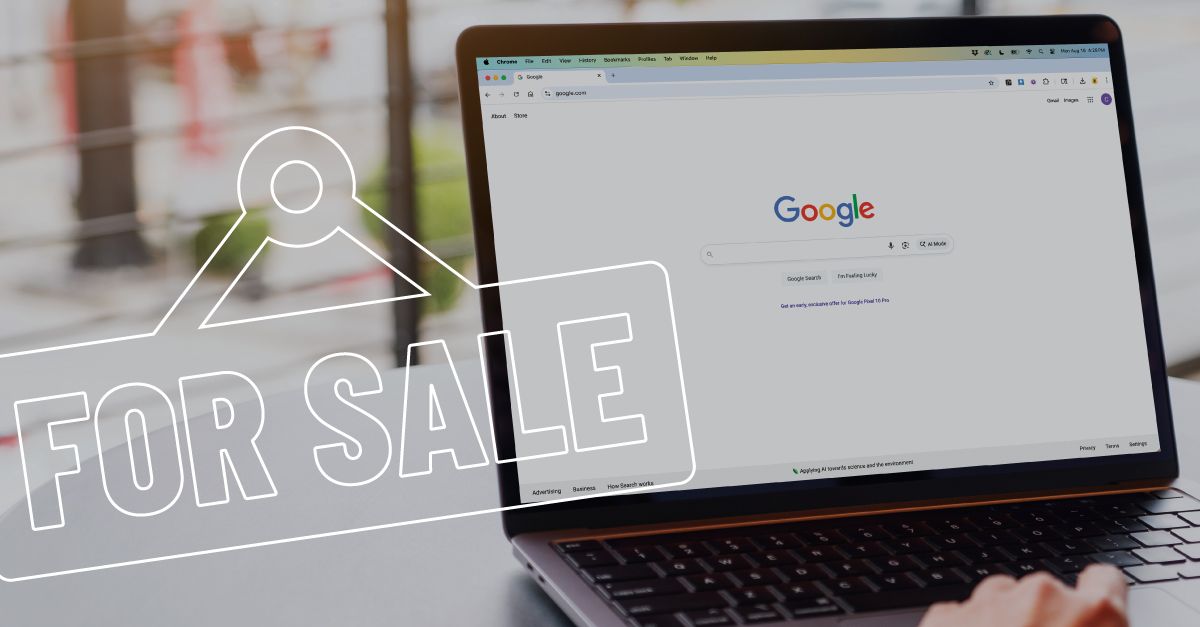
Bids are Already Coming in for Google Chrome
When Google was ruled a monopoly (for the second time) last year, the list of possible repercussions included the sale of Google Chrome to break up the Search advertisement market. Very few seemed to take this suggestion seriously at the time, but the DOJ has doubled down, calling for the tech giant to fully divest itself from the world’s most popular web browser.
Perplexity – an AI start-up led by CEO Sundar Pichai – recently slapped $34.5 billion dollars on the table in the first bid we know of for Google Chrome. Estimates of Chrome’s value place the browser somewhere between $20 to $50 billion, so Perplexity’s offer is reasonable if not on the high end of the scale. Curiously, Perplexity’s own value is estimated at $18 billion; the company has stated that investors and venture-capital firms are putting up the extra scratch for the buy out.


It’s been suggested that Perplexity’s bid was something of a PR play; they certainly have captured headlines and are already busy promoting their new AI-based browser, Comet. Whether the offer is sincere or a stunt, the cat is out of the bag; every major tech group will likely be lining up and digging absurdly deep into their pockets to place a bid.
It’s easy to understand why; in July 2025, 67.92% of internet users browsed using Chrome. Safari – in 2nd place – commanded only 16.23%. Whoever claims Chrome gets access to untold mountains of data, users, and revenue. This is particularly salivating to companies already embroiled in the AI arms race, which crave consumer data and has already cost some entities billions and billions in investments.


At time of writing, the judge overseeing the Search antitrust case has not yet announced that Google must divest Chrome. Therefore, the web browser is not officially for sale, but dollar signs have surely appeared in the eyes of tech executives the world over. For the advertiser, it’s hard to say what effect a new owner will have; it’s likely that they’d encourage advertisers to stay on the platform by opening up inventory across many different DSPs, as opposed to Google’s restrictive use of their own ad network (thereby accomplishing the DOJ’s intention of reducing Google’s hold on Search advertising).


This likely means lower prices in the short term, especially for users of the Genius Monkey platform. As a Meta-DSP, our platform combs through all possible network routes to placing an ad, balancing price and placement. If Chrome’s massive inventory is opened up to other networks, that means more routes and lower prices for our platform users.
One Retail Media Network is Lowering its Garden Wall – Sort of
Retail Media Networks are an interesting double-edged sword in programmatic advertising. On the one hand, advertisers get access to excellent first-party data when placing ads; on the other, that first-party data doesn’t talk with other networks, limiting the overall reach of the advertiser. And yet, one retail giant is looking to buck the trend by inviting a major DSP to get in on the action.
Home Depot has announced that advertisers can purchase ad space through a major ad network, even if they are advertising products that are not featured on Home Depot’s shelves. Advertisers can leverage “display, video, digital, audio, and connected TV”, according to Mandy Admans – senior director of Orange Apron Media. Home Depot’s ad network includes inventory for onsite, offsite, and in-store digital display placements, and now advertisers will have more options to reach it all.
This isn’t the first time that Home Depot has reached outside the normal retail media network; Orange Apron Media has made ad space available through other DSPs for advertisers looking to target “audience members in the midst of moving house or another DIY project.” But now it works both ways; Home Depot advertisers can go through Orange Apron Media to buy ads on other networks.
Retail media data is considered some of the best data that advertisers can use, and their restriction to walled gardens has been a severe limitation for programmatic advertising. So far, the best way to overcome these limitations has been partnering with Meta-DSPs, which gather data and buy ads through multiple networks and ad servers.


Could Home Depot be signaling a change in the wind for retail media networks? We’ll have to see if the move is profitable enough for both parties for the rest of the industry to take notice. More routes for more programmatic placements are always good for advertisers, especially when those advertisers work with a Meta-DSP that uses multiple ad networks. Genius Monkey users already enjoy access to Home Depot’s network and – just like Chrome potentially opening up – this lowering of the walled garden creates new possibilities for higher customer relevance and lower prices.
A Fluid Market Necessitates Flexibility
Money shifts, massive companies rise or fall, and power always finds a new place to rest its head. Agility is essential for surviving and thriving in digital advertising, and flexibility is one of the hallmarks of the Genius Monkey platform. As a Meta-DSP, our system stacks multiple DSPs to find advertisers the best balance of placement and price through many possible supply paths.
Whoever ends up with Chrome, whether retail media networks open up or stay walled off, Genius Monkey will continue to innovate and find new ways to make your advertising dollars stretch. Are you ready to start increasing your conversions and lowering your cost-per-conversions? It’s time to get in touch with Genius Monkey today!




